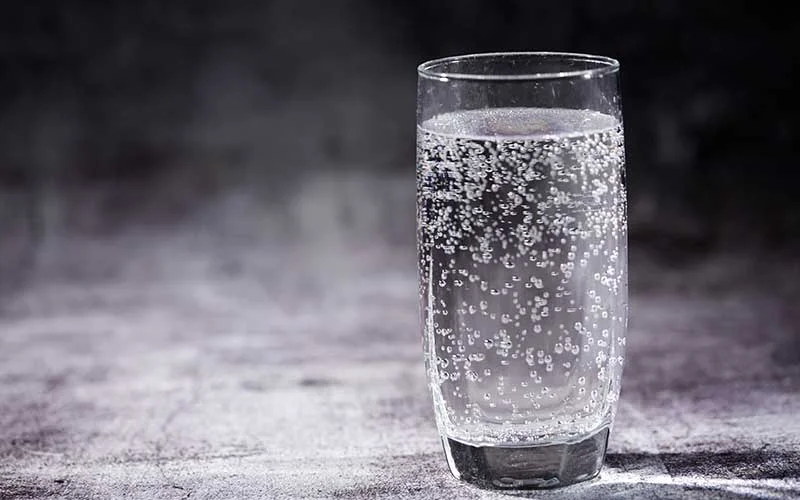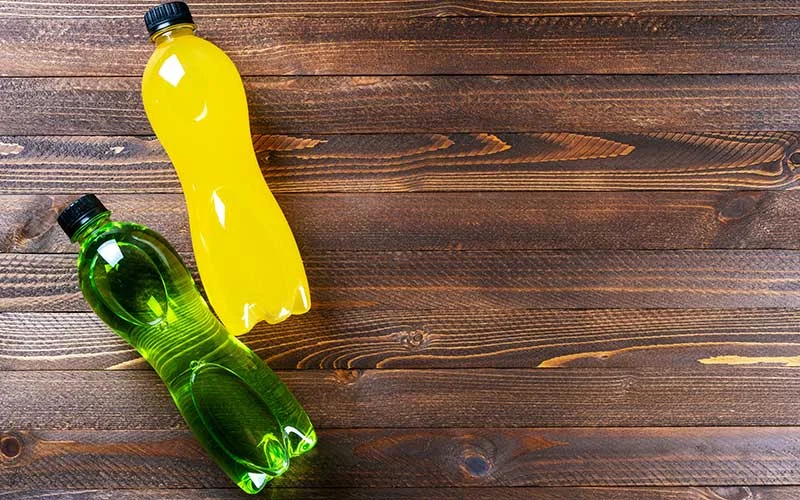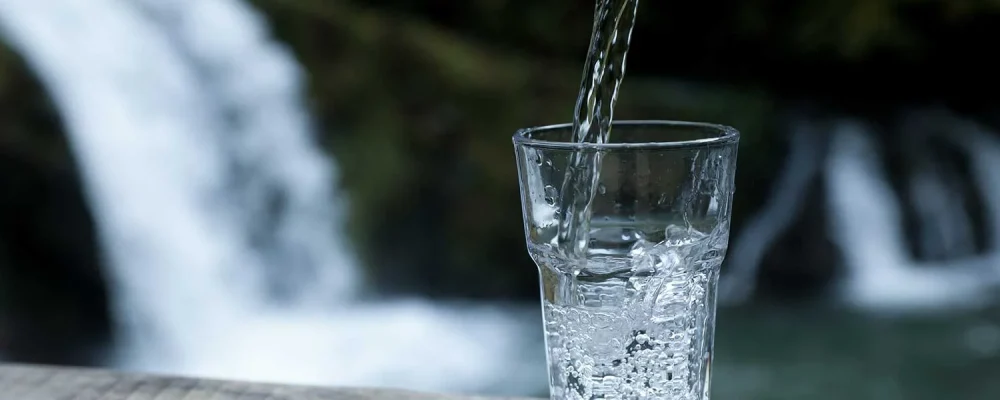Ever been stuck choosing between a yummy water enhancer or a tempting soda? We all want tasty stuff, but most of us also care about our health. However, what we believe about these products isn’t always true. This article will help you explore and figure out: What’s actually better for you? But before we get into that, let’s learn the basics of water enhancers and soda.
Water Enhancers: The Basics
Water enhancers are liquids or powders that add flavor to water. They come in different flavors and make water more interesting for people who don’t like plain water. These products are designed to make it easier to stay hydrated.
These enhancers make water taste better and might encourage you to drink more water, which is important for your body. These additives can help if you’re struggling to drink enough water since we know that is important for optimal health. Just be careful, as some enhancers might have artificial ingredients that aren’t good for you. You need to be informed about ingredients and remember to always read the labels to make smart choices.
Soda and Its Health Implications

Soda, a carbonated sugary beverage, is notorious for its negative impact on health. Loaded with added sugars and often artificial additives, soda contributes to weight gain, obesity, and related health issues. The high sugar content adds excessive empty calories to diets and lacks nutritional value.
Beyond weight concerns, soda consumption is linked to increased risks of diabetes, heart disease, and dental problems due to its sugar and acidity [1].
Regular consumption can lead to tooth decay and cavities. The addictive nature of the sugars and caffeine in soda further compounds health issues. Water enhancers offer a flavor boost to water without the downsides of soda. However, their ingredient quality should be monitored.
Soda’s health implications, stemming from high sugar content and lack of nutrients, make it a wise choice to cut down or eliminate from one’s diet [2]. Making informed beverage choices, focusing on hydration and health, is essential for overall well-being.
Water Enhancer vs. Soda: Which Is Healthier?

When considering the choice between water enhancers and soda, it becomes evident that beyond their mutual attraction for diversified flavors, these two options have markedly different effects on our well-being.
Nutritional Value
Water enhancers offer a calorie-free or low-calorie choice with minimal sugars and potential artificial additives. In contrast, sodas are high in calories from added sugars and contain artificial flavors, colors, and additives. Both lack significant nutrients, but water enhancers promote hydration without detrimental effects, unlike sodas.
| Nutritional Aspect | Water Enhancers | Soda |
| Calories | Typically calorie-free or minimal calories | High in calories, primarily from added sugars |
| Sugars | Some may contain minimal to no added sugars | High sugar content, contributing to health concerns |
| Artificial Additives | Can vary; some may contain artificial sweeteners/colors | Often contains artificial flavors, colors, and additives |
| Nutrient Density | Generally low in nutrients | Lacks essential nutrients |
| Hydration Contribution | Enhances water’s appeal, promoting hydration | Provides hydration but comes with detrimental effects |
Health Benefits
Water enhancers boost hydration by enhancing flavor, supporting bodily functions. Sodas provide hydration but often lead to health issues due to excessive sugar. Most water enhancers lack nutritional value beyond flavor, while sodas offer empty calories without nutrients. Water enhancers encourage healthy habits, while sodas are linked to obesity, diabetes, and heart disease risks.
| Health Benefits | Water Enhancers | Soda |
| Hydration Support | Encourages increased water consumption due to enhanced flavor. Supports essential bodily functions like digestion, circulation, and temperature regulation. | Provides hydration but often comes with excessive sugar content, potentially leading to negative health impacts. |
| Caloric Impact | Typically calorie-free, helping manage caloric intake. | Contains empty calories from added sugars, contributing to weight gain and obesity. |
| Nutritional Value | Minimal nutritional value, primarily enhancing water consumption. | Lacks essential nutrients, providing only empty calories and no nutritional benefit. |
| Dental Health | Can potentially be kinder to teeth compared to sugary beverages. | Regular consumption can lead to tooth decay and cavities due to sugar and acidity. |
| Long-Term Wellness | Supports a healthy lifestyle by promoting adequate hydration. | Regular soda consumption is linked to increased risk of obesity, diabetes, and heart disease. |
| Preference Impact | Encourages drinking water, even for those who find plain water unappealing. | Can contribute to unhealthy food cravings and a cycle of sugary food consumption. |
Potential Downsides
Water enhancers may contain artificial components, raising health concerns. Sodas contain additives contributing to negative health effects. Both have limited nutritional value, but water enhancers preserve a taste for plain water better, unlike the addictive sugars and caffeine in sodas. Relying solely on enhancers may disregard plain water’s importance, while sodas’ can lead to dehydration.
| Potential Downsides | Water Enhancers | Soda |
| Artificial Additives | Some water enhancers may contain artificial flavors, colors, and sweeteners, which might raise health concerns. | Sodas frequently contain artificial flavors, colors, and additives that contribute to its negative health effects. |
| Nutritional Value | Water enhancers typically lack nutritional value beyond flavor. | Sodas provide empty calories devoid of nutrients, potentially leading to overconsumption and weight gain. |
| Dependency | Over Reliance on water enhancers for flavor might lead to a diminished taste for plain water. | The addictive nature of sugars and caffeine in soda can foster dependency, making it challenging to cut down. |
| Hydration Concerns | Relying solely on water enhancers might undermine the importance of plain water for proper hydration. | The high sugar and caffeine content in soda can lead to dehydration, as they can have diuretic effects. |
Things to Consider Before Drinking Soda and Water Enhancers
Before choosing between soda and water enhancers, consider the following factors:
Sugar Content: Soda is notorious for its high sugar content. Water enhancers with no added sugars or artificial sweeteners can be healthier.
Ingredients: Carefully examine the ingredients list of water enhancers. Avoid those containing artificial additives and opt for natural alternatives.
Hydration: Remember that plain water remains the healthiest option for hydration. While water enhancers can make water more appealing, please don’t use them as a complete replacement for water.
Caloric Intake: Be mindful of the overall calorie content in your beverage choice. Soda often contains high calories from sugars, while some water enhancers are calorie-free. Opting for lower-calorie options can contribute to better weight management.
Nutrient Value: Consider the nutrient value of your chosen beverage. Soda lacks essential nutrients and is high in empty calories. Water enhancers may not provide significant nutrients but don’t have the same negative nutritional baggage as soda.
Artificial Ingredients: Beyond sugars, check for artificial flavors, colors, and preservatives in soda and water enhancers. Minimizing the consumption of these additives can contribute to a healthier diet.
FAQs
Can I Use Sparkling Water Instead of Soda Water?
Yes, sparkling water can be a healthier alternative to soda. It provides the fizziness of soda without excessive sugars and additives. However, check for added sugars or artificial flavors in some sparkling water brands.
How Can I Flavor Water Naturally?
Flavor water naturally by adding slices of fruits like lemon, lime, berries, or cucumber. For a refreshing twist, you can also infuse water with herbs like mint or basil.
Do Water Enhancers Contain Sugar?
Some water enhancers contain added sugars or artificial sweeteners. It’s important to read labels and choose products with minimal or no added sugars.
Can Water Enhancers Replace the Flavor of Soda?
Water enhancers can provide a flavorful taste to plain water, making it more enjoyable to drink. While they can mimic some aspects of soda’s flavor, they lack the intense sweetness and carbonation found in soda.
Final Thoughts
In the battle between water enhancers and soda, the scales tip in favor of water enhancers as the healthier choice. While moderation is key, water enhancers offer the potential to enjoy flavorful hydration without the excessive sugars and calories present in soda.
Make sure to look closely at the ingredients of some of the more preferable water enhancers. You may find a few that offer some added nutritional value and beneficial minerals, going beyond just adding flavor.
However, don’t forget that the ultimate hydration champion is plain water, complemented by the occasional use of natural flavor enhancers. Making informed choices about your consumption is a powerful step toward a healthier lifestyle.
Sources
[1] Malik, V. S., Hu, F. B. (2021). The role of sugar-sweetened beverages in the global epidemics of obesity and chronic diseases. Nature Reviews Endocrinology, 17(6), 326-337. https://www.nature.com/articles/s41574-021-00627-6
[2] Vartanian, L. R., Schwartz, M. B., Brownell, K. D. (2007). Effects of Soft Drink Consumption on Nutrition and Health: A Systematic Review and Meta-Analysis. American Journal of Public Health, 97(4), 667-675. https://www.ncbi.nlm.nih.gov/pmc/articles/PMC1829363/
RV Team
* Reviewology is in partnership or collaborates with top brands highlighted on this site, including those occupying the top ranking positions.
Additionally, we earn affiliate commissions from products showcased on this website when you make a purchase through the provided links on Amazon or the company website directly.
We appreciate your support using our links to purchase your favorite brands or newly discovered brands.
Latest updates
I Thought I’d Always Feel Tired, Fat, and Forgotten—Until This
310 Greens vs AG1
The Truth About 310 Greens: A No-Nonsense Review of This Popular Supplement
Popular
I Thought I’d Always Feel Tired, Fat, and Forgotten—Until This
310 Greens vs AG1
The Truth About 310 Greens: A No-Nonsense Review of This Popular Supplement
© 2024 Reviewology. All Rights Reserved.
